Welcome to the Climate Awareness Partnership Sidmouth!
The project to raise awareness of the climate – and our collective action to address it in the Sid Valley.
Founded in 2022, we are a partnership of Sidmouth Town Council and other local organisations – including the Sidmouth Churches, the Sidmouth Plastic Warriors , the Sidmouth Science Festival , Sidmouth schools and the Vision Group for Sidmouth
We are open to anyone living or visiting or interested in the Sid Valley community
Our aims include organising events, publicising support on reducing our carbon footprint, looking for opportunities to live more sustainably and celebrating success through the media.
Come join us at CAPS!
Welcome to the CAPS monthly newsletters!
Welcome to the new-look newsletters from the Climate Awareness Partnership Sidmouth – based on the excellent newsletters from the Devon Climate Emergency.
These will look at the positive stories of what’s happening in the Sid Valley and East Devon when it comes to reducing our carbon footprint and living more sustainably. And if you have any local news and stories around the climate, do get in touch @ https://caps.vgsidmouth.co.uk/contact-us
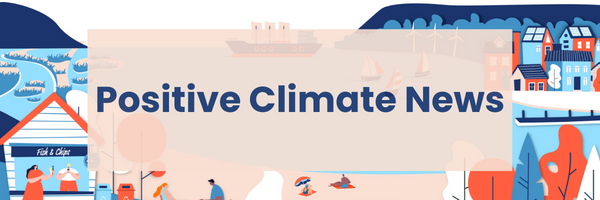
…
Have your say on the future of Sidmouth Library
We have until 23rd February to give feedback
“Having a positive impact on local people, bringing them together, making them smile and laugh, or expanding their knowledge or understanding in some way.” [Libraries Unlimited chief executive Alex Kittow]
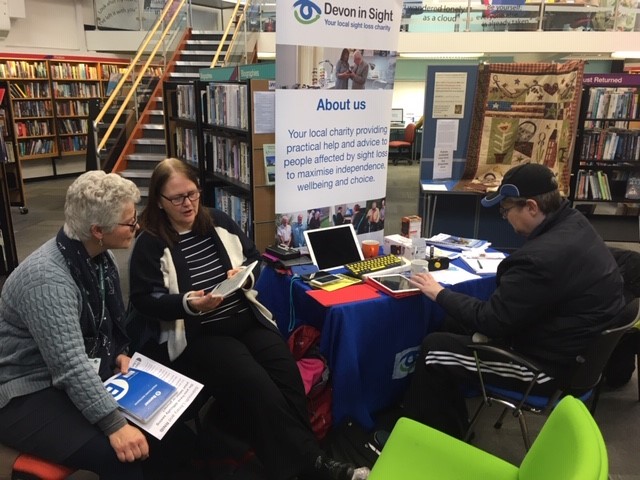
.
There’s lots on at the Library:
“Perhaps you find us a handy space to get some work done – with free wifi, calm desk spaces and printing facilities. Maybe you have little ones that enjoy our craft activities, home education or bounce and rhyme sessions. You might be saving a fortune on books by ordering in copies of their favourite series for free! Or you like popping in to see the friendly faces of our staff and volunteers. Maybe the library will be the only place where you will see someone today, or a welcoming place for you to warm up and get a much needed hot drink without the need to spend any money. Whatever value you get from your library, it is vital you make your thoughts known in the DCC Consultation on the future of Devon Libraries.”
Supporting Sidmouth Library: what’s on in Feb/March
Make your thoughts known here: Have your say on the future of Sidmouth Library
Finally, the Library is very much an eco-hub in its own right, for example: Together for Tomorrow: the new initiative at Sidmouth Library
…
East Devon Carbon Action Fund champions!
The District Council has just announced the winners: £254,000 has been awarded to help 15 organisations cut carbon emissions through the Carbon Action Fund.
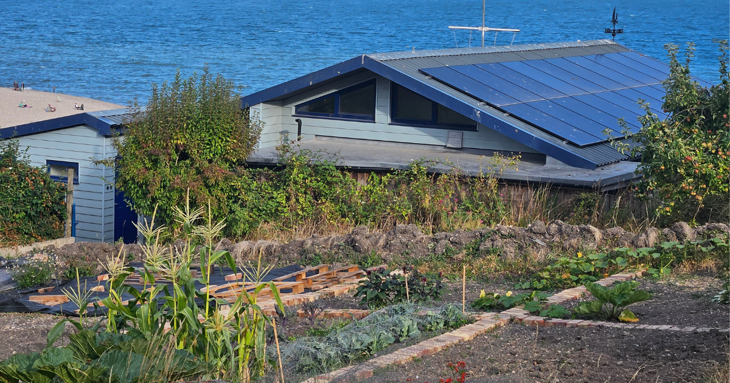
.
Supporting projects to reduce carbon emissions and energy use, the Carbon Action Fund is a decarbonisation grant scheme delivered through the UK Shared Prosperity Fund programme.
East Devon Carbon Action Fund champions! – Sustainable Sidmouth Champion Awards
…
Protecting your home against flooding in East Devon
With a “Flood Damage, Repair & Flood Prevention” guide from Go.Compare
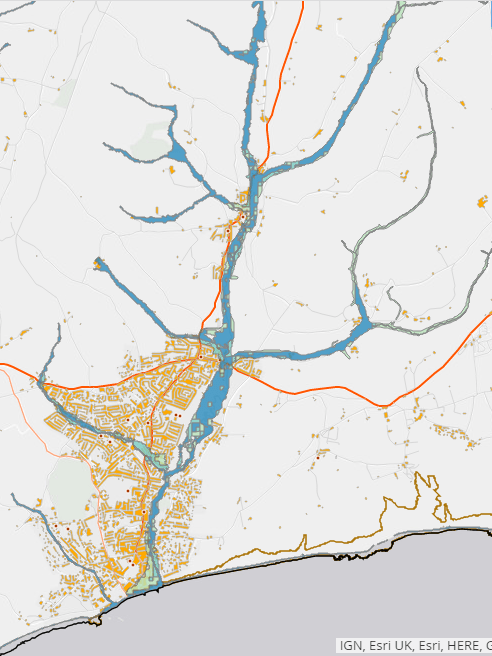
.
Map: Projected flooding in the Sid Valley 2100: Climate change and flooding in East Devon
And for the expert guide, see: Protecting your home against flooding in East Devon
…
Sidmouth Town Council funds thirty local community groups
“from improving the water quality in the River Sid and maintaining our local cemetery to advice sessions and combatting social isolation”

.
In 2026/7 the Town Council will fund over 30 community organisations and voluntary groups through its three grant schemes.
Sidmouth Town Council funds thirty local community groups
…
Sidmouth Nature: an information, learning and study resource
“for the people of Sidmouth interested in nature and for those from elsewhere interested in the nature of Sidmouth”
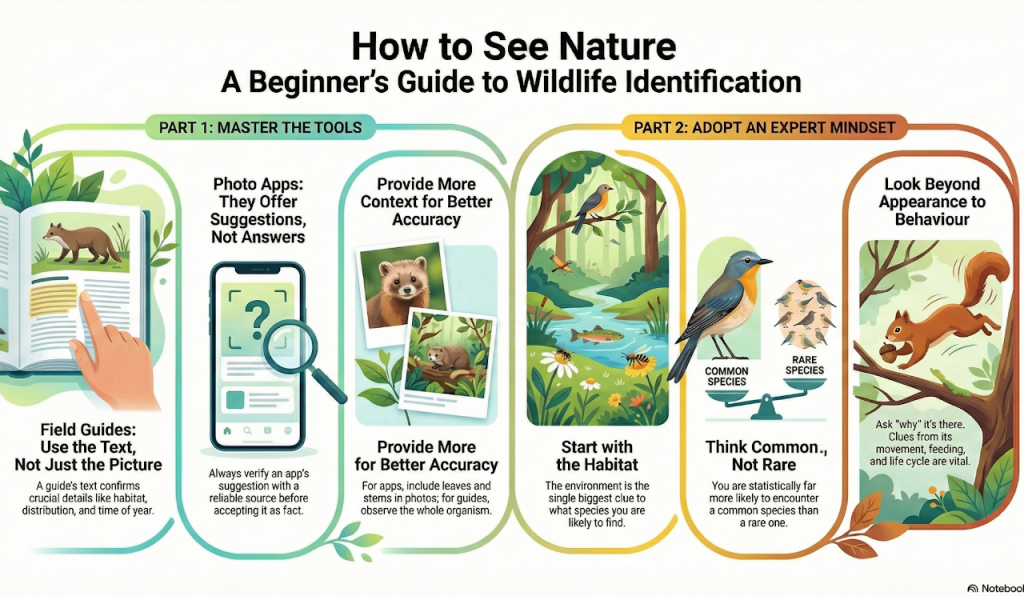
.
copyright Peter Orchard: Sidmouth Nature
The Sidmouth Nature website is barely three years old in the making, but it has become a seriously-solid place to go for an understanding of how the natural world in the Sid Valley works and interplays. As its creator Philip Orchard says on the home page, this is “an information, learning and study resource”.
Sidmouth Nature: an information, learning and study resource
…
The River Sid @ Sidmouth Nature
Looking at what Sidmouth Nature has to offer on the River Sid, there are several pages with nature and tourist guides, historical research, infographics, study proposals and more.
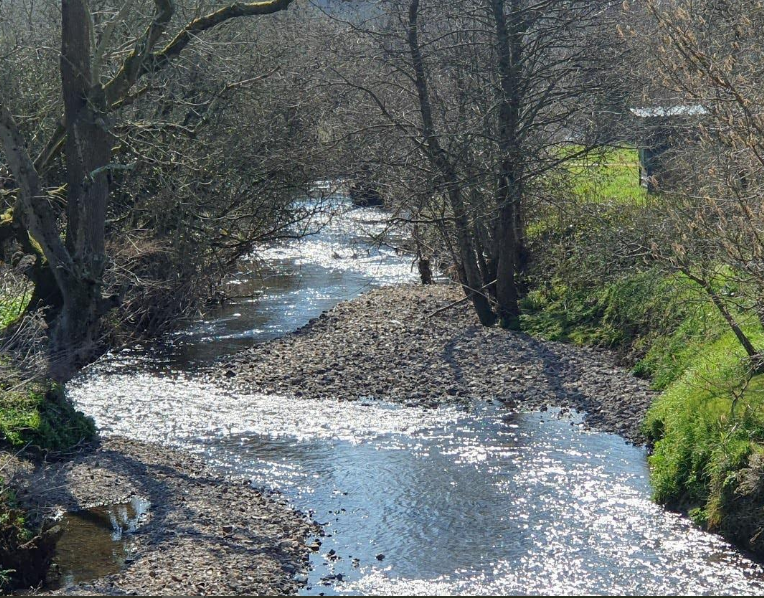
.
copyright Peter Orchard: Sidmouth Nature
The River Sid @ Sidmouth Nature – The Sid
…
How stories of personal experience cut through climate fatigue in ways that global negotiations can’t
From the latest Imagine newsletter from the Conversation
… not heroic tales, but examples of ordinary people protecting each other amid extraordinary circumstances. They build a sense of agency instead of despair.

.
By placing lived experience at the centre of climate communication, we move beyond abstract numbers toward the meaning of climate change in real lives. And meaning motivates action. Evidence from Africa also shows that stories grounded in local action can increase feelings of efficacy and strengthen community connection.
…
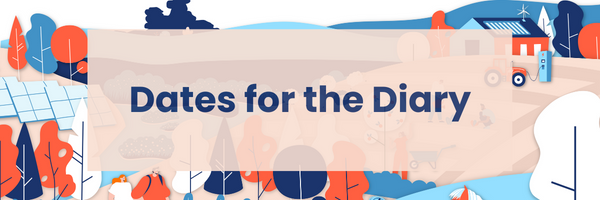
…
‘Confluence – the River Sid and its tributaries’ | to March
a new free public art display @ the Riverside ArtSpace
Looking after our river is key to managing our fragile environment – and over the last months, the Sidmouth School of Art has put together an extraordinary and ambitious project.

.
The Confluence – the River Sid and Its Tributaries project brings people, ideas, knowledge and action together to protect, conserve and enhance the river and its tributaries.
For more info: ‘Confluence – the River Sid and Its Tributaries’ – a new free public art display at the Riverside Art Space – The Sid
…
Café Scientifique
Devon Climate Emergency Partnership: Creating a resilient, sustainable Devon
3.00pm | Tuesday 17th February |Kennaway House
CANCELLATION The Sidmouth Café Scientifique scheduled for Tuesday 17 February at Kennaway House has been cancelled as the speaker is unwell.
Find out about the work of the Devon Climate Emergency partnership, including what its partners are doing and what you can do to help Devon achieve net zero and become more resilient to climate change.
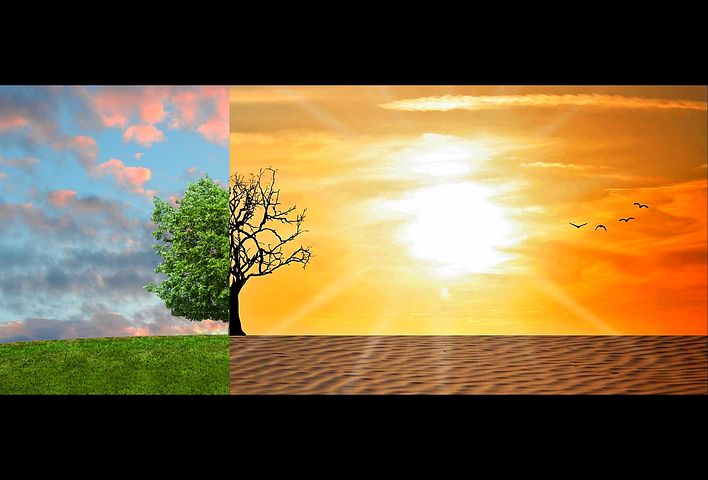
.
Talk by Emily Reed, the Devon Climate Emergency Partnership Manager, based at Devon County Council.
…
Sidmouth Arboretum AGM
5pm | Wednesday 18th February | Dissenters Hall
Apart from the usual AGM business, Jon ball will be giving an update on the Tree Survey that was supported by so many of our volunteers.

.
With more here: Tree Survey 2024 – Sidmouth Arboretum
AGM 18th February 2025 – Sidmouth Arboretum
…
Otter Valley Association
Havde you seen my little rubber duck: Ocean pollution
7.30pm | Wednesday 18th February | St Peter’s Hall Budleigh Salterton
Our oceans form a critical part of planet life, and yet pollution is extensive. Whether it be plastics, chemicals, sewage, oil spills of industrial waste the impact on marine ecosystems can be profound.
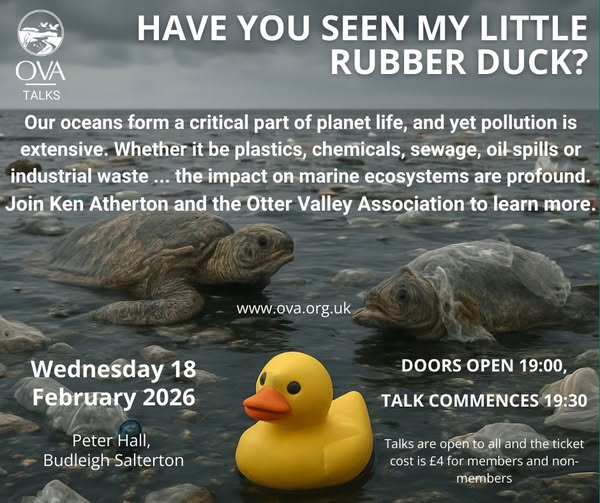
.
Join Ken Atherton as he discusses the state of our oceans in this ecological insight.
Have you seen my little rubber duck? (Ocean pollution) | Otter Valley Association
…
Devon Food Partnership
People Planet Profit: Demystifying Carbon
10am – 2pm| Tuesday 24th February | Darts Farm
A practical morning on decarbonisation and sustainability.
Hear from inspiring speakers, learn actionable steps, and discover funded support opportunities.
Lunch provided.
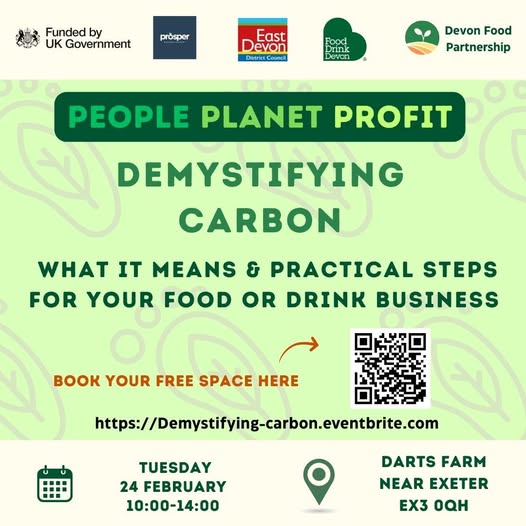
.
People Planet Profit:… – East Devon District Council | Facebook
Business Events: People Planet Profit – Devon Food Partnership
Book tickets: People Planet Profit – Demystifying Carbon Tickets, Tue, Feb 24, 2026 at 10:00 AM | Eventbrite
…
Portrait Exhibition
We are People of Power
from 3rd March | Sidmouth Library
We Are All People of Power is a striking portrait series created by artist Polly Meyrick during her residency with Regen’s Art Lab programme.
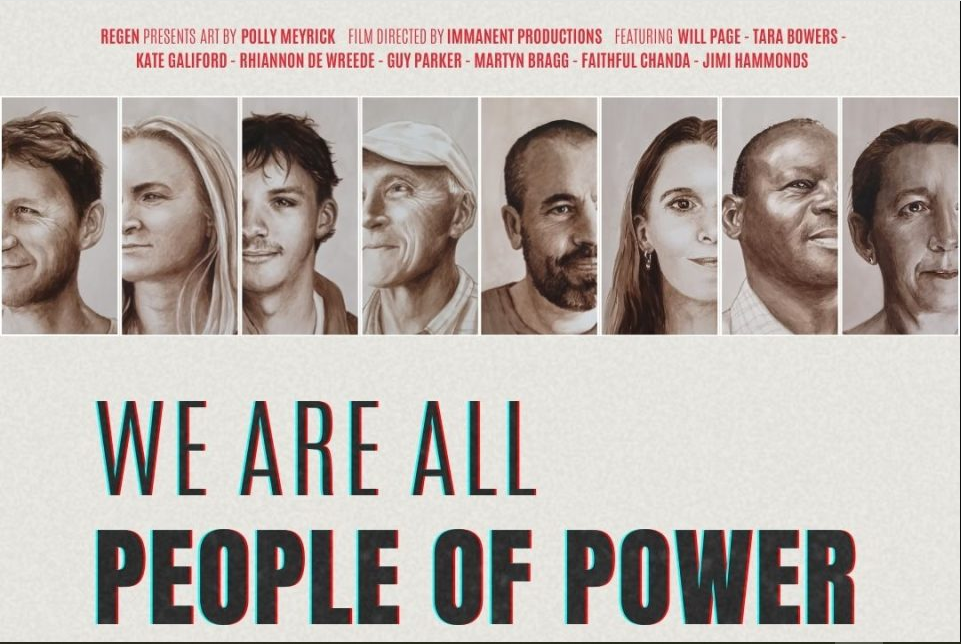
.
The project celebrates eight individuals in Devon who are quietly and powerfully shaping the transition to a low-carbon future—through cycling, farming, public engagement, and community energy. Combining hand-drawn ink portraits with recorded interviews, Polly invites viewers to connect with the people behind climate action and see themselves as part of the story.
We Are All People of Power – POLLY MEYRICK
See: https://www.facebook.com/LibrarySidmouth/
Case study: We Are All People of Power with Polly Meyrick
…
Sidmouth Plastic Warriors
Every first Sunday of the month | Sidmouth Beach Clean

. For more info: Sidmouth Plastic Warriors
…
Sidmouth Repair Café
Every last Saturday of the month | St Francis Church Hall, Woolbrook

.
For more info: https://www.facebook.com/sidmouthrepaircafe/
Find us on social media with daily news and stories: . Our mailing address is:info@caps.vgsidmouth.co.uk |